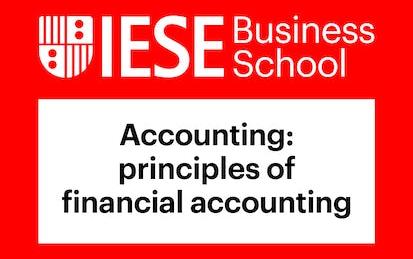

Our Courses

Securing Investment Returns in the Long Run
In this course, you will learn about the famous dichotomy between active and passive investing, how to appropriately measure and analyze investment performance and what the future trends in the investment management industry are. You will first learn about absolute and relative performance, risk-adjusted returns and how to decompose investment performance. The focus will then shift to the two main categories of investment vehicles, active and passive funds, and what they entail in terms of expected performance.
-
Course by

-
 Self Paced
Self Paced
-
 8 hours
8 hours
-
 English
English

Analysis of Business Problems
When does an opportunity to increase the bottom line become a liability for long-term brand sustainability and profitability? That is the question that GAS GAS, an off-road motorcycle manufacturer, is confronting. In this culminating course, it’s time to use the business tools you have learned throughout the specialization to solve this real business problem. To help you as you develop a solution to the GAS GAS dilemma, in the Capstone you will also learn a six-step analysis of business problems methodology.
-
Course by

-
 Self Paced
Self Paced
-
 10 hours
10 hours
-
 English
English

Introduction to Applied Machine Learning
This course is for professionals who have heard the buzz around machine learning and want to apply machine learning to data analysis and automation. Whether finance, medicine, engineering, business or other domains, this course will introduce you to problem definition and data preparation in a machine learning project. By the end of the course, you will be able to clearly define a machine learning problem using two approaches. You will learn to survey available data resources and identify potential ML applications.
-
Course by

-
 Self Paced
Self Paced
-
 7 hours
7 hours
-
 English
English

Accounting: Principles of Financial Accounting
Financial Accounting is often called the language of business; it is the language that managers use to communicate the firm's financial and economic information to external parties such as shareholders and creditors. Nobody working in business can afford financial illiteracy. Whether you run your own business, work as a manager or are just starting your career, you want to understand financial information and be able to interact with accountants, controllers, and financial managers. You want to talk business! This course will provide you with the accounting language's essentials.
-
Course by

-
 Self Paced
Self Paced
-
 13 hours
13 hours
-
 English
English

Finance for Managers
When it comes to numbers, there is always more than meets the eye. In operational finance, you will learn how to read the “story” that the balance sheet and income statement tells about the company’s operations. The insights you gain from this “financial story” will then become a tool for short-term decision-making at the top management level relating to current assets, current liabilities and the management of working capital. Finally, by the end of the course you will understand the financial consequences of managerial decisions on operations, marketing, etc.
-
Course by

-
 Self Paced
Self Paced
-
 14 hours
14 hours
-
 English
English

Predictive Modeling and Analytics
Welcome to the second course in the Data Analytics for Business specialization! This course will introduce you to some of the most widely used predictive modeling techniques and their core principles. By taking this course, you will form a solid foundation of predictive analytics, which refers to tools and techniques for building statistical or machine learning models to make predictions based on data. You will learn how to carry out exploratory data analysis to gain insights and prepare data for predictive modeling, an essential skill valued in the business.
-
Course by

-
 11 hours
11 hours
-
 English
English



